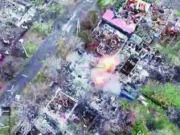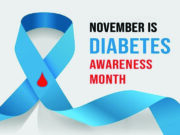By: Umm Zaynab
Losing a loved one is one of the major trials of life many of us will encounter. Grief from that loss is a natural reaction that takes a different trajectory for different people. Some people describe grief as a dark fog that is difficult to shake, others speak of the suffocating regret and anxiety that often accompany those feelings, still others speak about grief as waves that rise up and subside at different points.
“And We will surely test you with something of fear and hunger and a loss of wealth and lives and fruits, but give good tidings to the patient, Who, when disaster strikes them, say, “Indeed we belong to Allah, and indeed to Him we will return.” Those are the ones upon whom are blessings from their Lord and mercy. And it is those who are the guided.” (Surah Al-Baqarah, 2:155-157)
Sometimes people expect to follow a particular timeline of grief, but the reality is that the journey of grief is different for everyone. Counsellors and bereavement supporters often speak about the five stages of grief that were popularized in the famous book On Death and Dying by psychiatrist Elizabeth Kubler-Ross namely: denial (as you begin to come to terms with the reality of the situation, denial begins to fade and difficult feelings may begin to surface) anger/anxiety (anger is the body’s natural reaction to threat and, oftentimes, there is no greater threat than the loss of someone you love or the loss of the way you envisioned life would be. Anger can also feel powerful during times when we feel powerless. You may experience nervousness, heart palpitations, restlessness, irritability, and/or difficulty breathing) bargaining (this stage often includes “If only…” statements due to the feelings of regret that come up with loss. This stage is characterized by an overwhelming desire for life to return to the way it was)depression (you might feel down and cry more often than you usually do. It may also feel like you have less motivation and find less enjoyment in activities you used to love. This stage can feel as though it’ll stretch on forever) and acceptance (it involves accepting the reality that this person is physically gone and that this new reality is the permanent reality. Acceptance does not mean that you’re “ok” with what happened. The loss of someone you love will likely never feel ok. The goal in this stage is to learn how to live with this loss and create a new normal despite the huge piece that is missing).
However, recent research and understanding has concluded that grief can be an individualized and unpredictable experience and no two people’s experiences will be the same. Let us look at some advice in the Quran and Sunnah to help us cope with grief and the loss of a loved one:
Shed tears as much as you want, but don’t let the tongue say what may displease Allah.
Our Prophet Muhammad, peace and blessings be upon him, experienced grief at many points of his life, often at the loss of loved ones. During these experiences he taught us that grief is a natural emotion and that Allah does not hold us accountable for expressing sadness and pain in a permissible manner. Sadness does not negate the acceptance of Allah’s decree which is the very center of a believer’s journey in grief.
As we see from the ahadith above where the Prophet Muhammad, peace and blessings be upon him, was coping with grief, patience in Islam does not mean that we do not cry and that we do not express our emotions. What is forbidden is wailing and slapping one’s cheeks which was the culture at that time (the Arabs – women in particular – used to scream and wail during funerals or at someone’s death). As the Prophet Muhammad said the eyes shed tears and the heart is grieved but the tongue only says what is acceptable to Allah.
Make dua for yourself.
As human beings, we attempt to cope with negative emotions in different ways. We often attempt to push away difficult emotions because they make us feel uncomfortable as it’s a painful process to sit with these feelings. We may try to distract ourselves or put on a fake smile. Some may even self-medicate through the use of drugs or alcohol to alleviate the pain they are feeling. When we are unable to grieve fully and an experience becomes a source of trauma, we are thrust into survival mode, which shuts down the executive functioning part of our brain and prevents us from thinking clearly. This is why we may react to situations in unhealthy ways or do things during times of stress that we would not have done during times of ease. This is one reason why some people struggle to worship Allah during times of extreme stress. When the “danger activation center” part of our brain is dominant, there is a decrease in self-awareness, our capacity to self-evaluate, and our ability to establish goals. All of these require advanced thought processes, which are very difficult to sustain during times of extreme stress. In order for any activity to help, our brain needs to register it. Research has shown an association between prayer and the ability to re-engage the “thinking” part of our brains.
Umm Salama, the wife of the Messenger of Allah, may Allah be pleased with her, reported Allah’s Messenger, peace and blessings be upon him, as saying: “If any servant (of Allah) who suffers a calamity says: ‘We belong to Allah and to Him shall we return; O Allah, reward me for my affliction and give me something better than it in exchange for it,’ Allah will give him reward for affliction, and would give him something better than it in exchange.”
Source: zillnoorain.com





























